
Editor’s Introduction: August 2013
by: Read The Dirt Posted on: August 08, 2013
Welcome to our August 2013 Editor’s Introduction—published on the 8th of every month. Join us as we work to provide tactical information.
In this month’s edition you will find:
- articles on climate adaptation; specifically, how and where Indigenous Peoples are leading the way.
- case studies of the obstacles citizens face when working to place their rights above corporations’.
- an update from Benton County, OR—working to pass the nation’s first Food Bill of Rights.
- information on Lane County, OR’s effort to join Benton.
- news from Spokane, WA: how corporations’ are manipulating not only how we vote, but what we can vote on.
- details of a major farmworker strike in Skagit County, WA.
- a look at recent Icelandic history, and a discussion of the lessons it may provide.
- the truth about a conflict of interest that is jeopardizing Americans’ fertility.
- questions about how the future will define “rights of nature.”
Coming Soon (Book): Read the Dirt: Best of the Early Years, A Sign of Things to Come—Read the Dirt Press 2013
Get in touch with Read the Dirt, email info@readthedirt.org.
The Articles:
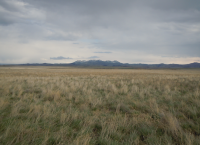 Native Resilience and Interethnic Cooperation: How Natives are adapting to climate change, and helping their non-Native neighbors follow suit: Natives are used to challenges—colonization offers an example. Natives’ historic resiliency and local traditional knowledge, along with their political sovereignty, is empowering them to lead in the effort to adapt to today’s changing climate. Grossman offers a run-down of interethnic cooperation among Natives and non-Natives, from the Midwest to the Northwest. Have you heard of the Cowboy and Indian Alliance? It turns out that communities where conflict has historically been most intense are the places where cooperation more easily develops.
Native Resilience and Interethnic Cooperation: How Natives are adapting to climate change, and helping their non-Native neighbors follow suit: Natives are used to challenges—colonization offers an example. Natives’ historic resiliency and local traditional knowledge, along with their political sovereignty, is empowering them to lead in the effort to adapt to today’s changing climate. Grossman offers a run-down of interethnic cooperation among Natives and non-Natives, from the Midwest to the Northwest. Have you heard of the Cowboy and Indian Alliance? It turns out that communities where conflict has historically been most intense are the places where cooperation more easily develops.
For more on Indigenous Climate Adaptation see the following reprints from Indigenous Peoples Issues and Resources:
– Bolivia: Building Resilience To Climate Change Through Indigenous Knowledge – The Case Of Bolivia
– Benin: Local Knowledge And Adaptation To Climate Change In Ouémé Valley, Benin
 Obstacles to Asserting Rights: When citizens get together to elevate their rights above corporations’—there is a backlash. What this backlash looks like can be unpredictable. Spokane offers a case study. There, citizens are elevating their right to clean elections, constitutional rights in the workplace, neighborhood decision-making power, and the legal rights of the Spokane River and Aquifer above corporations’ rights.
Obstacles to Asserting Rights: When citizens get together to elevate their rights above corporations’—there is a backlash. What this backlash looks like can be unpredictable. Spokane offers a case study. There, citizens are elevating their right to clean elections, constitutional rights in the workplace, neighborhood decision-making power, and the legal rights of the Spokane River and Aquifer above corporations’ rights.
“Simply put, not only have corporations been able to influence HOW we vote via their wealth and so-called people “rights,” but now they are attempting to decide WHAT we get to vote on.”
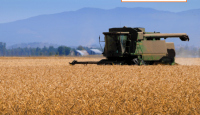 Benton County, OR Moves Forward with Nation’s Potential First Food Bill of Rights: A brief update on their efforts, and the obstacles they face.
Benton County, OR Moves Forward with Nation’s Potential First Food Bill of Rights: A brief update on their efforts, and the obstacles they face.
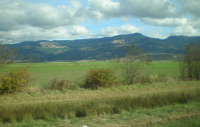 What is the Local Food System Ordinance of Lane County?: An explanation offered by Community Rights Lane County.
What is the Local Food System Ordinance of Lane County?: An explanation offered by Community Rights Lane County.
Lane County Initiative to Protect Local Farming Encounters Hurdle; Campaign Still Targeting May 2014 Election: Lane County, OR joins Benton County in defending the right to vote on rights-based, food-centric, ordinances in Oregon.
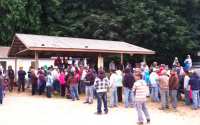 ¡HUELGA! Mixteco and Triqui Farmworkers commence second Work Stoppage at Sakuma Brothers Farms, Inc.: Why are workers striking? Read their grievances.
¡HUELGA! Mixteco and Triqui Farmworkers commence second Work Stoppage at Sakuma Brothers Farms, Inc.: Why are workers striking? Read their grievances.
 USA Refuses to Ban Atrazine: Atrazine is used in many herbicides in the USA. It is a known endocrine disruptor that reduces testosterone production and stimulates estrogen secretion. Why is a conflict of interest within the EPA stopping us from banning it?
USA Refuses to Ban Atrazine: Atrazine is used in many herbicides in the USA. It is a known endocrine disruptor that reduces testosterone production and stimulates estrogen secretion. Why is a conflict of interest within the EPA stopping us from banning it?
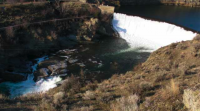 When Public Utility Districts Forget Who They Serve: Democracy, local Native culture, a Public Utility District and a dam are all converging in Okanogan County.
When Public Utility Districts Forget Who They Serve: Democracy, local Native culture, a Public Utility District and a dam are all converging in Okanogan County.
 Imagining a New Society: Comparisons from Iceland: Davis Maas, a retired political science professor, looks at recent events in Iceland as a source of learning for the pro-democracy, reform-minded, United States Citizen.
Imagining a New Society: Comparisons from Iceland: Davis Maas, a retired political science professor, looks at recent events in Iceland as a source of learning for the pro-democracy, reform-minded, United States Citizen.
Rites of Nature: Now that legal rights of nature exist, what will this mean as they scale up? Damon contributes to the conversation.
Reprints:
Bolivia: Building Resilience To Climate Change Through Indigenous Knowledge – The Case Of Bolivia: By Climate and Development Knowledge Network, via Indigenous Peoples Issues and Resources
Benin: Local Knowledge And Adaptation To Climate Change In Ouémé Valley, Benin: By R.A.B. Kpadonou, P.Y. Adégbola, and S.D. Tovignan, via Indigenous Peoples Issues and Resources
Local Food System Ordinance of Lane County, Oregon: By Community Rights Lane County, via Community Rights Lane County
Thank you for reading,
Articles On Featured Originals
Featured Originals:
- Sep 26 Education Sneak Peek
- Jul 21 Check It Out!
- Jun 5 US Climate Movement: Funnel Money Downward if You Want to Survive
- May 19 Part 2: Jordan Cove LNG Backers Spend Huge Money to Sway Tiny Oregon County Election
- May 2 Part 1: Oregon County Faces Gas Industry Funding, Lobbyists in Battle to Halt Jordan Cove LNG Project
- Mar 10 Get To Know The BATS: Teachers Fighting Privatization
- Mar 6 Re-Imagining Local Public Space, From Parks to Post Offices
- Jan 12 For Teachers and Citizens: How to Respond to Federal Immigration Raids
- Jan 5 How To Respond When Your (Local) Government Gets Sued By A Corporation
- May 25 Interview: The Working Class Movement Fighting for Local Authority
- Apr 29 Interview: Challenging Corporations’ ‘Right’ To Grow GMOs in Rural Oregon
- Dec 8 Editor’s Introduction: December 2013
- Nov 8 Editor’s Introduction: November 2013
- Oct 8 Editor’s Introduction: October 2013
- Sep 8 Editor’s Introduction: September 2013
- Aug 8 Editor’s Introduction: August 2013
- Jul 8 Editor’s Introduction: July 2013
- Jun 8 Editor’s Introduction: June 2013
- Jun 8 Housing Justice: Fighting for Rights
- Jun 6 GM Wheat Discovered in Oregon, Benton County Continues Work on Food Bill of Rights
- May 8 Editor’s Introduction: May 2013
- May 8 Does Food Sovereignty Exist in the United States? Food and the Community Rights Movement
- May 8 Washington Community Action Network Talks Rights
- Apr 8 Editor’s Introduction: April 2013

